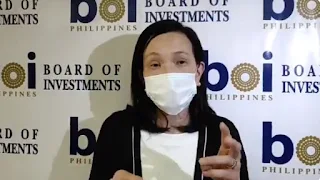Said Jacob Kampp Berliner, Social Entrepreneur, in an interview with Tiger Of Sweden for their website.Tiger of Sweden is a Stockholm-based fashion house established in 1903 with a heritage in tailoring. Since then, the brand dresses men and women for whom true style is about the confidence to be themselves. Tiger of Sweden's collections encompass men's and women's tailoring, ready-to-wear and accessories. Headquartered in Stockholm, Tiger of Sweden's collections are sold globally, both online and at over 1,200 retail stores. The Company offers jeans, suits, shirts, knit wear, underwear, waistcoats, and accessories for men, as well as jeans, dresses, blazers, shirts, skirts, shorts, and accessories for women.
Excerpts from the interview:
So, what do you do, in your own words?
I invest and run businesses that all have a social purpose. The goal is always to do something better, or to do something that hasn’t been done before.
What do you mean by social?
Most of the projects I’m involved in is with more than one partner. And there’s always some social aspect of how we make decisions. And a lot of the projects are circled around Copenhagen. Somehow, they’re built like small families. I like the idea of thinking global when you do something but acting local.
Is that how you chose your businesses?
No, all of the businesses I’m involved in are all about doing something better or doing things in a new way. Like working with food in an organic way instead of a conventional way. But it’s always about make a progression of something that has already been invented.
So would you say that being an entrepreneur is this social aspect of it?
Yeah. But I’m not a big fan of the word entrepreneur. It’s like a boss word nowadays. I think the most important part is to create something that has a benefit somehow. Very often a business is just about making a profit and not actually something society gains from. But if it’s something everyone actually burns for, it will end up being a business. I’m not focused on smart ideas, I’m focused on a problem and how we can find a solution for it.
What is success in these social businesses then?
I think on a personal level success is ending up creating your own work life and that you create a lot of other people’s work-life. And you end up seeing someone go to start their own business. It’s to put ripples on the water somehow.
How do you see the potential?
It can be a business that’s dying out, like the record business a few years ago, and to find another way to do it. There’s always room for a niche.
Can you tell me something about a project you felt failed?
I’ve tried lots of projects that didn’t work out. Of course something can be a failure in the moment, but often it’s about the learning and the experience you gain from it. So I don’t feel afraid of doing something that doesn’t work out. The goal is not to do projects that are an extreme success. The goal is actually to projects that evolve yourself or you learn something new. I wasn’t great at school, and the failure of not getting an education I found out is the strongest thing I have now. I don’t know how to do things so I just do them. Sometimes you just have to do something first and then you find out. What I often bring to the table is energy.
So what inspires you? Someone you look up to?
No not really. If you’re able to rethink an idea and don’t try to copy what you did before, people who can do that I think are interesting. I went home early from my dad’s party the other week, but my dad went on to another party with my friends, and they sent me pictures of him dancing on the table. He’s like 65. I just like the idea that if you think less about what the norm is, what you can do and not do, that energy I think is important. I look up to people who don’t think too much about how they should fit in.
What are you curious about right now?
The wheat business. Gender. Africa. And sustainability.
We’ve been talking about confidence. What do you think that means?
Confidence is about being curious. To be open to new ideas and new solutions. To not rely on what is already said.
What do you wish you’d had known when you started out?
Nothing really. Part of what I enjoy is what I don’t know.
Read More..... Story Of Jacob Kampp Berliner






